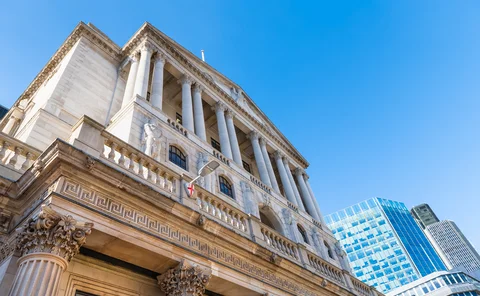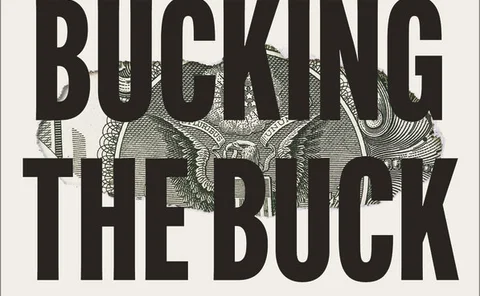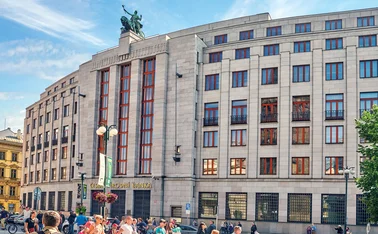Singapore leaves monetary policy unchanged
Decision comes despite moderation in domestic inflation
Uzbekistan reduces policy rate by 50bp
Central bank delivers first cut since May 2023
Firms’ prices respond rapidly to CPI data – BoE study
Companies are more sensitive to rises in inflation than to falls
Innovate to tackle challenges, says BoT deputy governor
Mallikamas outlines ways to deal with economic and geopolitical uncertainties
Central Banking Summer Meetings 2024
How the Czech National Bank brought inflation down from 18% to 2% in two years
Governor Aleš Michl on the road to 2% inflation and future profitability
Ukraine’s central bank is reforming during wartime, governor says
NBU is strengthening insurance and investment, Pyshnyy tells Summer Meetings
Central banks continue climate action despite political pressure
Reserve managers are expanding green investments, as some incorporate “double materiality”
Central Banking Awards 2024 ceremony honours best in field
Shirakawa receives lifetime award and Brazil is named central bank of the year
Editor's choice

Payments Benchmarks 2024 report – towards tokenisation
Benchmarks highlight optimism on tokenisation, hostility to crypto and efforts to upgrade RTGS

Masaaki Shirakawa on his ‘unease’ about 2% inflation targets and lessons from Japan
Former BoJ head speaks about the need to understand banking, make contingency plans and current policy constraints

Non-banks in RTGSs: greater efficiency or more risk?
Policy-makers and practitioners from central banks in Brazil, Hungary, Israel, Romania, Rwanda and the US share their perspectives

How to cut the interest cost of bank reserves – and how not to do it
William Allen says setting required reserves is not a straightforward decision for the Bank of England
Benchmarking
Quarter of central banks use tiered reserves remuneration
Corridor systems remain most common method of setting short-term interest rate

Are low-level inflation targets still fit for purpose?
Geostrategic shifts make the case for a narrow price target less compelling
Awards
Central Banking Awards 2024 ceremony honours best in field
Shirakawa receives lifetime award and Brazil is named central bank of the year
Central bank of the year: Central Bank of Brazil
The Latam central bank has pursued its mandate in an exemplary fashion, despite external pressures
Lifetime achievement: Masaaki Shirakawa
The veteran BoJ central banker called out the limits of monetary policy
Governor of the year: Andriy Pyshnyy
Pyshnyy kept Ukraine’s wartime economy stable and won vital foreign support under huge pressure
Video and Podcasts

Masaaki Shirakawa on his ‘unease’ about 2% inflation targets and lessons from Japan
Former BoJ head speaks about the need to understand banking, make contingency plans and current policy constraints

Podcast: cash in the payments landscape

Podcast: the ‘global unsyncing’

Podcast: the ECB’s collateral framework expansion
Book reviews

Book notes: How a ledger became a central bank: a monetary history of the Bank of Amsterdam, by Stephen Quinn and William Roberds

Book notes: Bucking the buck: US financial sanctions and the international backlash against the dollar, by Daniel McDowell

Book notes: The wealth of a nation, by George Hodgson

Book notes: Balance of power: central banks and the fate of democracies, by Éric Monnet and translated by Steven Rendall
Sponsored content
About
These articles were paid for by contributing third parties. Click here for more information on content funding.

























